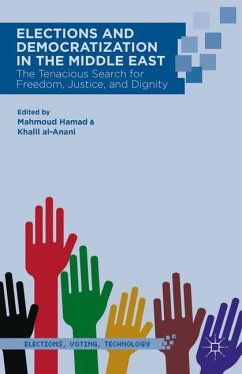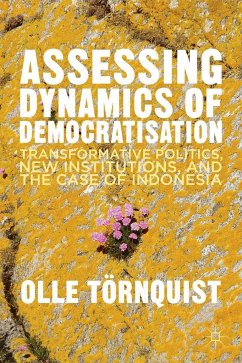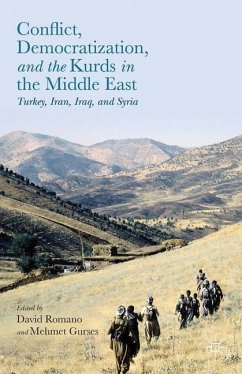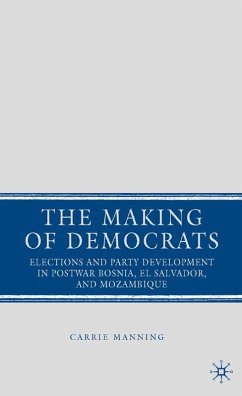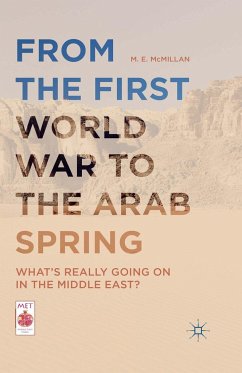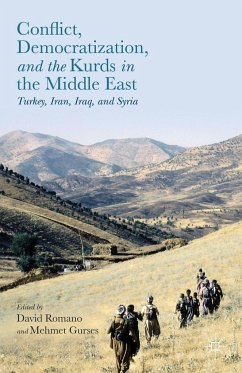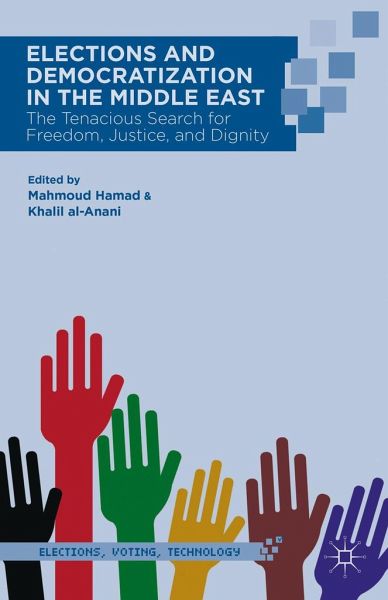
Elections and Democratization in the Middle East
The Tenacious Search for Freedom, Justice, and Dignity
Herausgegeben: Hamad, M.; Al-Anani, K.

PAYBACK Punkte
19 °P sammeln!
Top scholars of the Middle East set out the history and future of elections in eight Middle East countries. Examining issues associated with elections, the transition of governance, and the ways in which technology shapes popular participation in politics and elections, they discuss the future of governance and democratic transition in the region.





